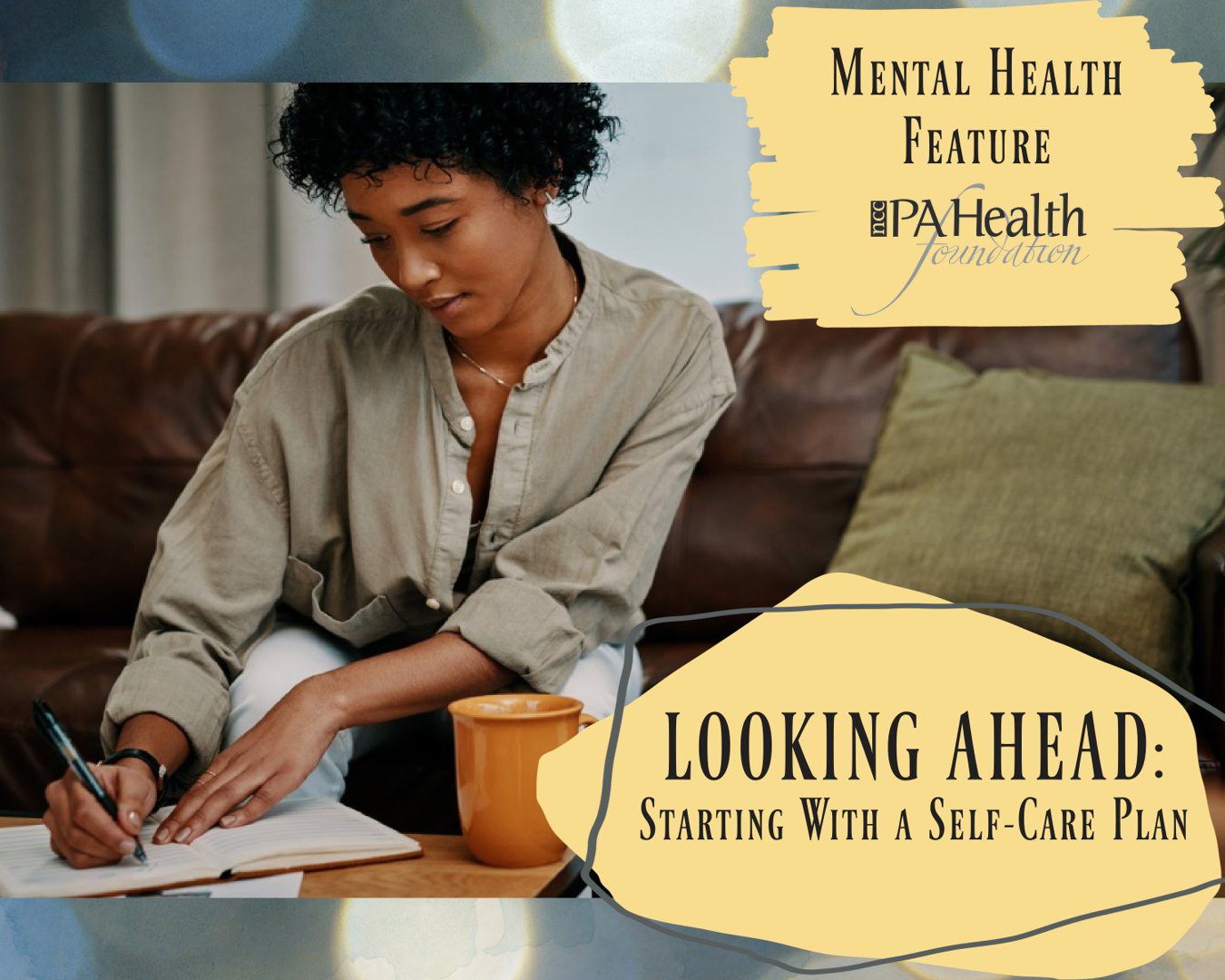Looking Ahead: Starting with a Self-Care Plan
Self-care has become a hot topic for wellbeing; and since the start of the COVID-19 pandemic, many of our self-care routines have been up-ended by a drastically changing world. As we look ahead, it is important for both providers and patients to care for their physical, mental, and emotional wellbeing through acts of self-care that may help prevent future health conditions.
Plus, taking care of yourself is essential for caring for others, whether those are your patients, your family, or friends.
In creating a self-care plan for yourself or a patient, use evidence-based practices that are known to support and foster physical, emotional, social, and spiritual wellbeing. These can be straightforward activities such as drinking enough water or engaging in social interactions.
It is also important to encourage SMART goals with each activity, making them specific, measurable, attainable, realistic, and time bound to ensure we are tracking them and holding ourselves accountable. This also means setting a manageable number of goals, as too many changes at once can be overwhelming and work against your efforts.
At times, we may not know where to begin formulating a self-care plan. Fortunately, there are quick, easy assessment tools to evaluate multiple areas and help bring focus to one’s efforts. The University at Buffalo School of Social Work offers a self-care assessment and multiple worksheets to help build a self-care plan.
With resources like these, we can take steps toward forming our individual plans for improving wellness; and keep in mind, self-care isn’t one-size-fits-all, find the activity or activities that are most helpful and restorative for you.
Reflecting on how you’re doing and identifying a well-rounded and consistent plan for our patients or ourselves are the first steps to bring about a happier, healthier future!

More tips on building a self-care plan:
- Marshfield Clinic Division of Education, Self-Care Plans: Building Yours: https://www.marshfieldclinic.org/education/residents-and-fellows/well-being-committee/well-being-topics/quality-of-life/self-care-plans-building-yours
References:
- Br J Gen Pract, Supporting Self-care in general practice: https://www.ncbi.nlm.nih.gov/pmc/articles/PMC2151815/

